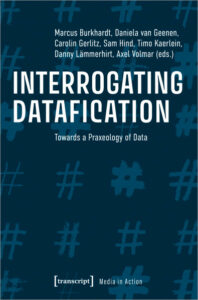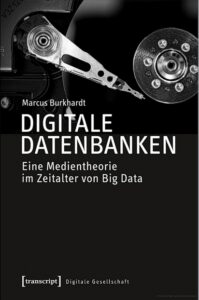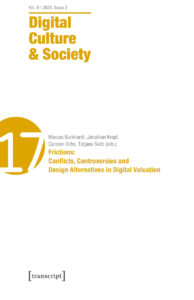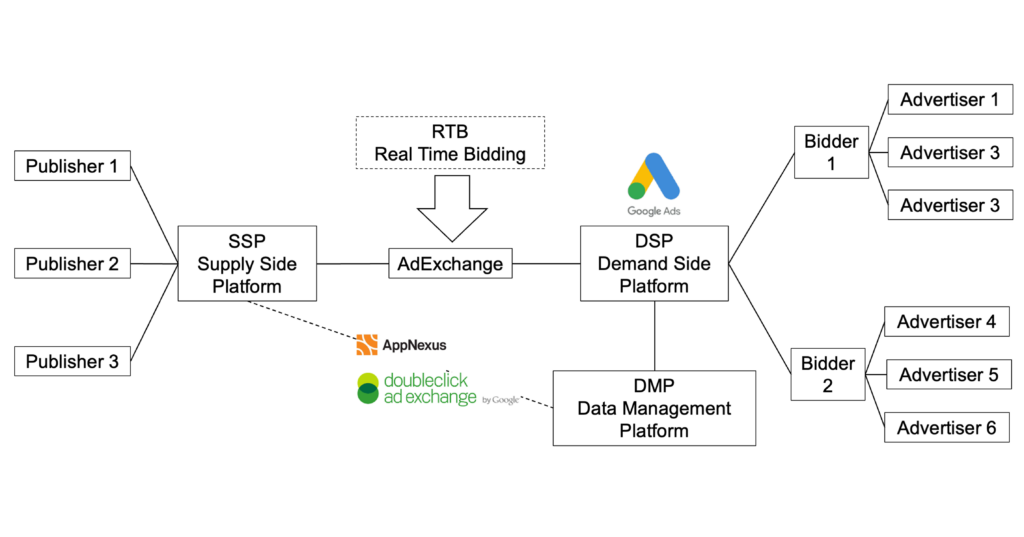Catalina Goanta, Benjamin Peters, Jürgen Streeck and Jill Walker Rettberg are new Mercator Fellows at the CRC 1187
The Collaborative Research Center (CRC 1187) “Media of Cooperation” welcomes four new Mercator Fellows: Catalina Goanta, Benjamin Peters, Jürgen Streeck and Jill Walker Rettberg. These outstanding researchers will contribute their scientific expertise and innovative approaches to the CRC 1187.
About the Mercator Fellowship at the CRC 1187
The CRC 1187 awards Mercator Fellowships to outstanding researchers worldwide to extend scientific collaboration within its network. Mercator Fellows work closely for extended periods with one or more projects. Together with its regular members, Mercator Fellows study digital, data-intensive media to develop interdisciplinary approaches further and help shape the CRC’s research programme. Including these renowned researchers strengthens the international network of the CRC 1187 and promotes the transfer of knowledge and ideas, which is of central importance for contemporary digital research at the CRC.
The Mercator Fellowship is a module within the German Research Foundation’s funding programme intended to facilitate a sustainable research exchange between the researchers of the CRC 1187 and the fellows.
About the Mercator Fellows
Prof. Dr. Catalina Goanta
Law, Economics and Governance
Molengraaff Institute for Private Law
University of Utrecht, the Netherlands
About Catalina Goanta
Catalina Goantas researches at the intersection of law, technology and society with a particular focus on platform regulation, content monetization and consumer law in the digital age. As head of the EU-funded ERC Starting Grant project HUMANads (2022-2027), she investigates how influencer marketing, algorithmic advertising systems and new forms of digital work should be evaluated from a legal and social perspective. In addition to her academic work, she is in demand internationally as an expert on platform regulation.
Goanta has been awarded for her innovative teaching and research approaches and received a fellowship at the Stanford Transatlantic Technology and Law Forum in 2017. This was followed by the Niels Stensen Fellowship in 2018. Her dissertation on the digitalization of contract law at Maastricht University laid the foundation for her intensive examination of the legal and social challenges of the platform economy.
Among her most significant publications are the 2020 anthology The Regulation of Social Media Influencers, which analyzes the regulation of social media influencers from various perspectives and highlights the challenges of influencer marketing, and the 2021 article “A New Order: The Digital Services Act and Consumer Protection” in the European Journal of Risk Regulation, which examines the EU’s Digital Services Act (DSA) from the perspective of consumer protection and intermediary liability.
Prof. Dr. Birgit Meyer
Department of Philosophy and Religious Studies
Utrecht University, the Netherlands
About Birgit Meyer
As a cultural anthropologist with over 30 years of experience, Birgit Meyer studies religion from a material and postcolonial perspective. Her research strivesfor a synthesis between empirical research and theoretical reflection in a broad multidisciplinary setting. Focuses of her research over time include religion in Africa; the rise and popularity of global Pentecostal churches; religion, popular culture and heritage; religion in (post)colonial settings; religion and media; religion and the public sphere; religious visual culture; and senses and aesthetics.
Her most significant publications include the 2021 open-access book Refugees and Religion: Ethnographic Studies of Global Trajectories, which understands religion from a material and corporeal angle, and addresses the ways in which refugees practice their religions and convert or develop new faiths, and the 2024 article “‘Idols’ in the museum: Legacies of missionary iconoclasm” in the collection Image Controversies: Contemporary Iconoclasm in Art, Media, and Cultural Heritage, which critically analyzes contemporary iconoclasms in art, media and the treatment of cultural heritage from a global and interdisciplinary perspective.
Prof. Dr. Benjamin Peters
Hazel Rogers Endowed Chair in Media Studies
University of Tulsa, USA
About Benjamin Peters
Benjamin Peters researches topics in the fields of media theory, new media history, technology criticism, digital cultures and the politics of information technologies, with a particular focus on the relationships between new technologies, culture and society and the history of Soviet computer science. Benjamin Peters has received several awards for his academic work, including the Computer History Museum Prize (2018) for his book How Not to Network a Nation and the Wayne S. Vucinich Book Prize (2017). He was honored for his outstanding teaching with the Outstanding Teaching Award of the University of Tulsa in 2023.
Peters received his PhD in Communication Studies from Columbia University in 2010. Since 2017, he has been an associate professor in the Department of Media Studies at the University of Tulsa, where he holds the Hazel Rogers Endowed Chair in Media Studies. Other academic positions have taken him to Yale Law School (2015) and the Kate Hamburg Kolleg at RWTH Aachen University (2022-2023) and to the MECS Institute of Advanced Study at Leuphana University (2017, 2019). He has also worked at the Berkman Klein Center for Internet & Society at Harvard University and as a visiting professor at the Hebrew University in Jerusalem.
His most significant publications include the 2016 open-access book How Not to Network a Nation: The Uneasy History of the Soviet Internet, which has won several awards, and in 2021 he co-edited the open-access anthology Your Computer is on Fire, which advances the critical reassessment of the digital revolution.
Prof. Dr. Jürgen Streeck
Department of Communication Studies, Moody College of Communication
University of Texas at Austin, USA
About Jürgen Streeck
Jürgen Streeck researches multimodal interaction, in particular the coordination of speech, gesture and gaze as well as the social significance of actions in communication. He has contributed to the development of multimodal interaction research and deals with the connections between language, music and orality, particularly in hip-hop. He has received several awards for his academic work, including the Georg Gottfried Gervinus Fellowship (2013-2014). He was a fellow at the Freiburg Institute for Advanced Studies and at the Center for Interdisciplinary Research (ZiF) in Bielefeld.
Streeck received his PhD in linguistics from the Freie Universität Berlin in 1981 and has been Professor of Communication Studies at the Department of Communication Studies at the University of Texas at Austin since 2013. He was previously an associate professor in the same department and also held a professorship in linguistics at Freie Universität Berlin. He has also held visiting professorships and fellowships at universities such as the University of Oldenburg, the University of Vienna and the University of Utrecht.
His most significant publications include the 2009 book Gesturecraft: The Manu-facture of Meaning, in which Streeck examines how hand gestures in communication represent and interpret the world, based on microethnographic research and theories of cognition and interaction. In the volume Self-Making Man: A Day of Action, Life, and Language, published in 2017, Jürgen Streeck analyzes how a car mechanic in Texas creates his social world and identity in communication through gestures, language and actions.
Prof. Dr. Jill Walker Rettberg
Center for Digital Narrative, Department of Linguistic, Literary and Aesthetic Studies
University of Bergen, Norway
About Jill Walker Rettberg
Jill Walker Rettberg researches the interactions between narratives and digital technologies, in particular the impact of artificial intelligence on storytelling and the dissemination of stories online. Rettberg has received awards for her work, such as the 2017 John Lovas Memorial Award for her innovative use of social media in research. She was also awarded the Meltzer Foundation Prize for Excellence in Research Dissemination (2006) for her outstanding research work.
Jill Walker Rettberg received her doctorate in computer science from the University of Bergen in 1998. She has been sharing her research findings on her blog jill/txt and on social media since 2000, making her one of the first academic bloggers. Since 2014, she has been Professor of Digital Culture and Co-Director of the Center for Digital Narrative at the University of Bergen. She leads the ERC Advanced Grant project “AI Stories: Narrative Archetypes for Artificial Intelligence” and the ERC Consolidator project “Machine Vision in Everyday Life”. Other academic positions have taken her to the University of California, Berkeley (2015) and the MIT Media Lab (2018) as a visiting professor.
Jill Walker Rettberg’s significant publications include the book Machine Vision: How Algorithms are Changing the Way We See the World, published open access in 2023, in which Rettberg examines how technologies such as surveillance cameras and TikTok filters influence our perception of the world. In the book Seeing Ourselves Through Technology: How We Use Selfies, Blogs and Wearable Devices to See and Shape Ourselves, also published open access in 2014, Rettberg examines how selfies, blogs and lifelogging devices shape our self-perception and enable a new way of presenting our identity.





